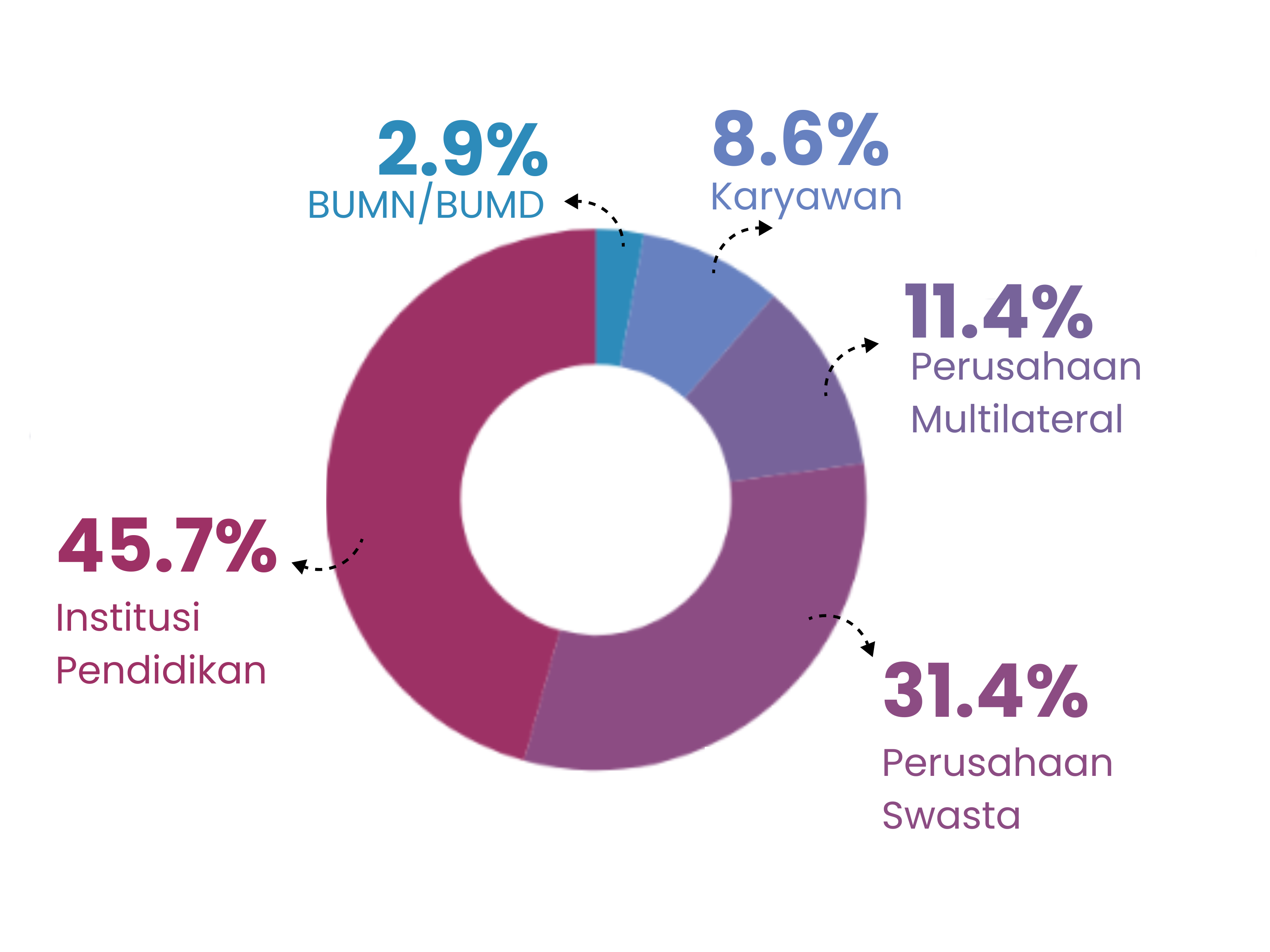Terdapat dua profil lulusan program sarjana bimbingan dan konseling , yaitu sebagai konselor sekolah atau guru Bimbingan dan Konseling di lembaga pendidikan serta sebagai
|
No. |
Profil Lulusan |
Deskripsi |
|
1 |
Guru Bimbingan dan Konseling |
1.
Guru bimbingan dan konseling (BK) memiliki kompetensi pedagogik
sebagai guru BK. menguasai teori dan praktik dalam layanan BK berbasis ilmu
psikologi terapan.GC teachers have personality competence in performing GC
services at school. be a role model for students 2.
Guru BK mempunyai kompetensi sosial. mempunyai kecakapan dalam
berkomunikasi dan bersosialisasi dalam konteks Pelayanan dan kehidupan sosial
di sekolah dan masyarakat. 3.
Guru BK mempunyai kompetensi profesional.
Pelayanan BK didasarkan pada kegiatan profesional yang menjunjung tinggi kode
etik sebagai konselor yang telah diatur dalam organisasi profesi. |
|
2 |
Praktisi Bimbingan dan Konseling |
1. Praktisi GC
memiliki kompetensi pedagogik sebagai konselor komunitas. Menguasai teori dan
praktik dalam layanan GC berbasis Ilmu Psikologi terapan dalam konteks
sosial. Praktisi Konselor memiliki kompetensi dalam melaksanakan pelayanan Bimbingan dan Konseling di masyarakat.
menjadi panutan dan memiliki kewibawaan di masyarakat. 2.
Praktisi konselor mempunyai kompetensi sosial. mempunyai
kecakapan dalam berkomunikasi dan bersosialisasi dalam konteks Pelayanan dan
kehidupan sosial di masyarakat. 3.
Praktisi Konselor memiliki kompetensi
profesional. Pelayanan Bimbingandan Konseling didasarkan pada kegiatan
profesional yang menjunjung tinggi kode etik sebagai konselor yang telah
diatur dalam organisasi profesi. |
